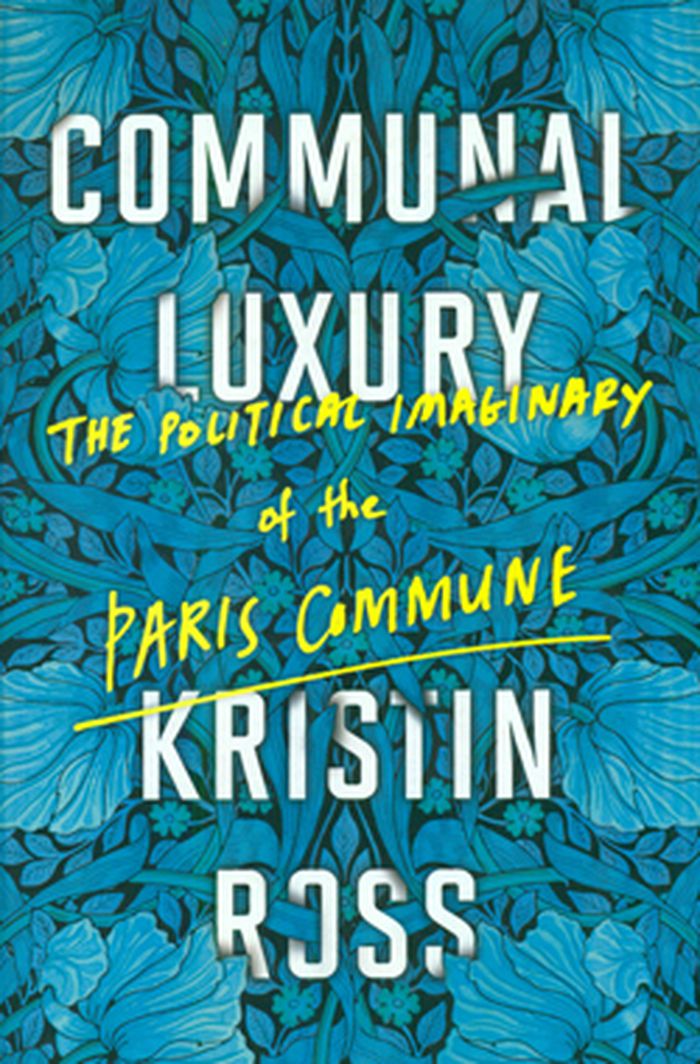$25.95
(available in store)
Summary:
When the state recedes, the commune-form flourishes. This was as true in Paris in 1871 as it is now whenever ordinary people begin to manage their daily lives collectively. Contemporary struggles over land - from the zad at Notre-Dame-des-Landes to Cop City in Atlanta, from the pipeline battles in Canada to Soulèvements de la terre - have reinvented practices of(...)
The Commune form: The transformation of everyday life
Actions:
Price:
$25.95
(available in store)
Summary:
When the state recedes, the commune-form flourishes. This was as true in Paris in 1871 as it is now whenever ordinary people begin to manage their daily lives collectively. Contemporary struggles over land - from the zad at Notre-Dame-des-Landes to Cop City in Atlanta, from the pipeline battles in Canada to Soulèvements de la terre - have reinvented practices of appropriating lived space and time. This transforms dramatically our perception of the recent past. Rural struggles of the 1960s and 70s, like the "Nantes Commune," the Larzac, and Sanrizuka in Japan, appear now as the defining battles of our era. In the defense of threatened territories against all manners of privatization, hoarding, and infrastructures of disaster, new ways of producing and inhabiting are devised that side-step the state and that give rise to unprecedented kinds of solidarity built on pleasurable, fruitful collaborations.
Social
books
$14.50
(available to order)
Summary:
The 1870s in France – Rimbaud’s moment, and the subject of this book – is a decade virtually ignored in most standard histories in France. Yet it was the moment of two significant spatial events: France’s expansion on a global scale, and, in the spring of 1871, the brief existence on the Paris Commune – the construction of the revolutionary urban space. Arguing that(...)
June 2004
The emergence of social space: Rimbaud and the Paris Commune
Actions:
Price:
$14.50
(available to order)
Summary:
The 1870s in France – Rimbaud’s moment, and the subject of this book – is a decade virtually ignored in most standard histories in France. Yet it was the moment of two significant spatial events: France’s expansion on a global scale, and, in the spring of 1871, the brief existence on the Paris Commune – the construction of the revolutionary urban space. Arguing that space, as a social fact, is always political and strategic, Kristin Ross has written a book that is at once a history and geography of the Commune’s anarchist culture – its political language and social relations, its values, strategies, and stances.
books
June 2004
$27.95
(available to order)
Summary:
Kristin Ross’s new work on the thought and culture of the Communard uprising of 1871 resonates with the motivations and actions of contemporary protest, which has found its most powerful expression in the reclamation of public space. Today’s concerns —internationalism, education, the future of labor, the status of art, and ecological theory and practice — frame and inform(...)
Communal luxury : the political imaginary of the Paris commune
Actions:
Price:
$27.95
(available to order)
Summary:
Kristin Ross’s new work on the thought and culture of the Communard uprising of 1871 resonates with the motivations and actions of contemporary protest, which has found its most powerful expression in the reclamation of public space. Today’s concerns —internationalism, education, the future of labor, the status of art, and ecological theory and practice — frame and inform her carefully researched restaging of the words and actions of individual Communards. This analysis of an event and its centrifugal effects brings to life the workers in Paris who became revolutionaries, the significance they attributed to their struggle, and the elaboration and continuation of their thought in the encounters that transpired between the insurrection’s survivors and supporters like Marx, Kropotkin, and William Morris.
Critical Theory

